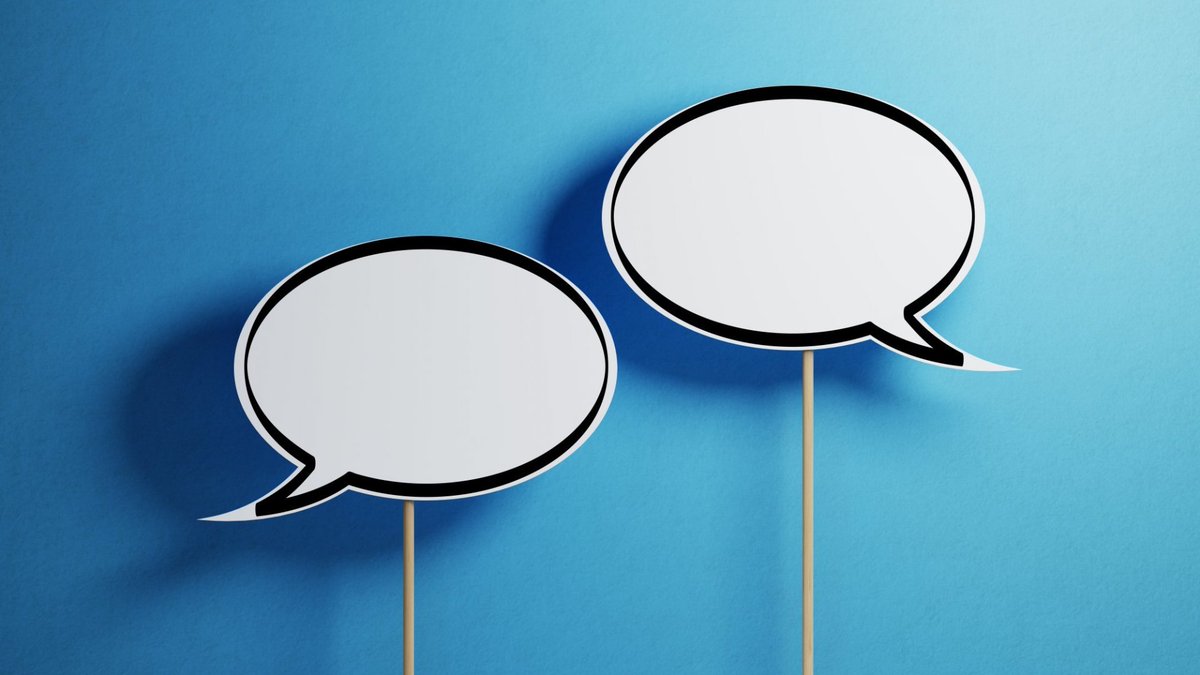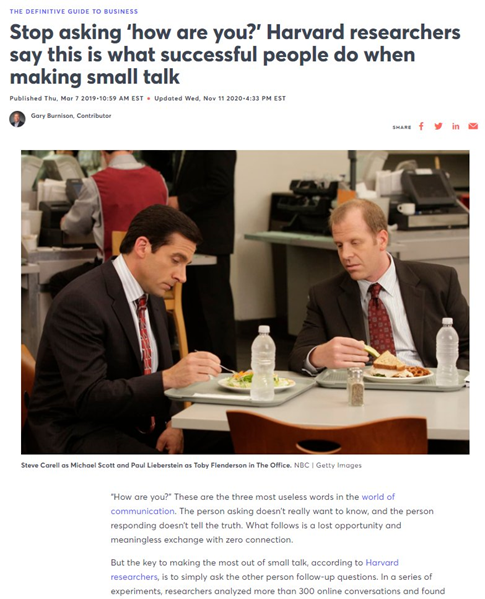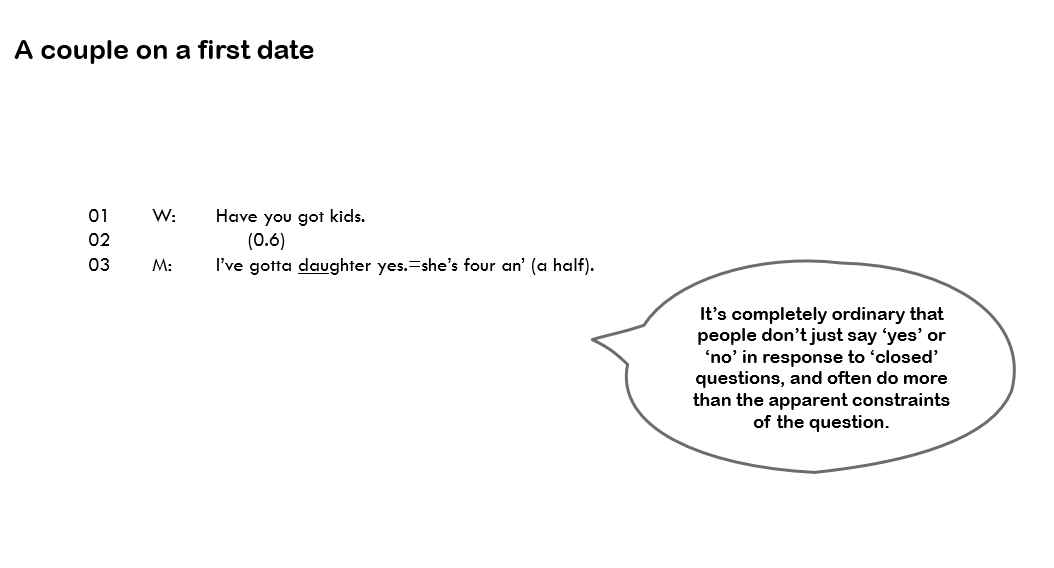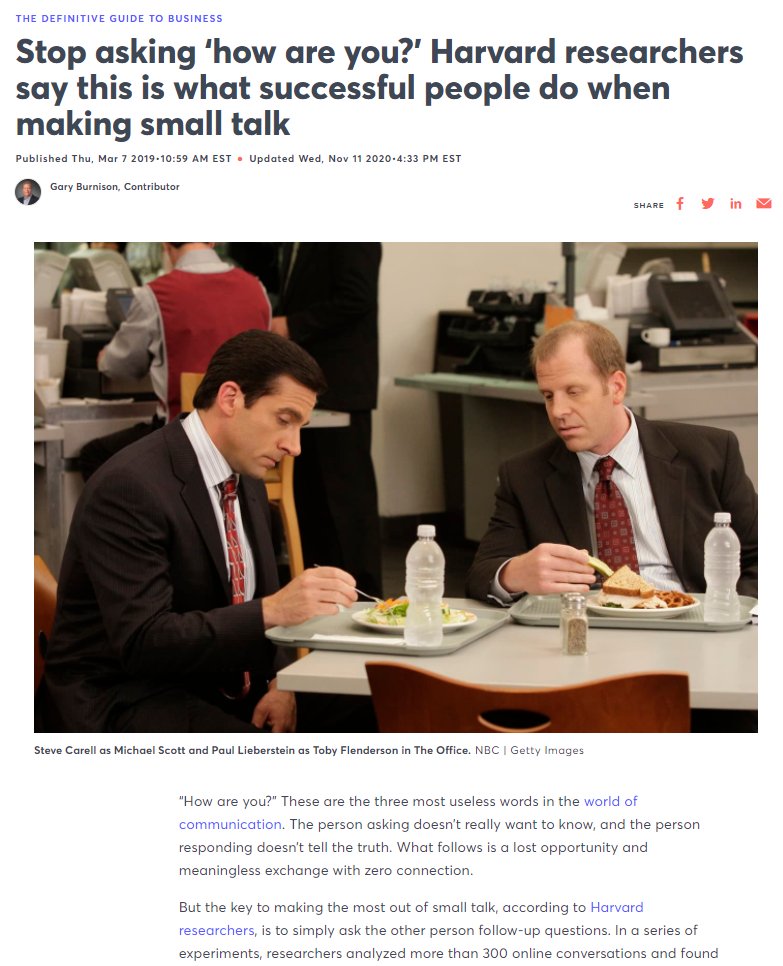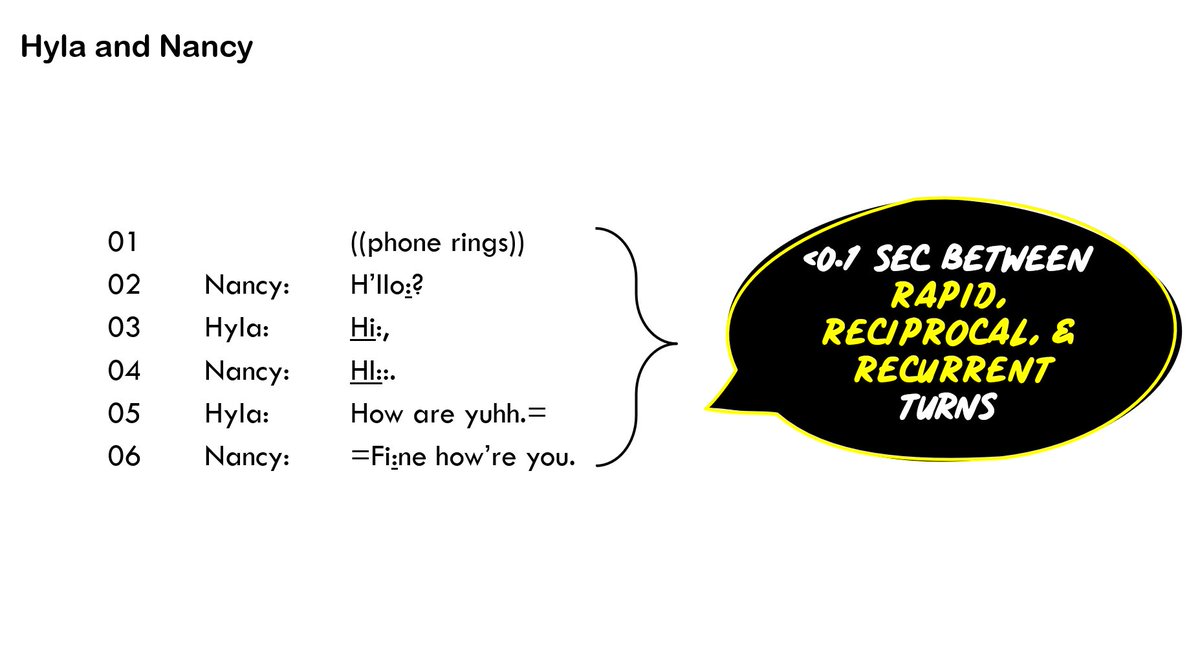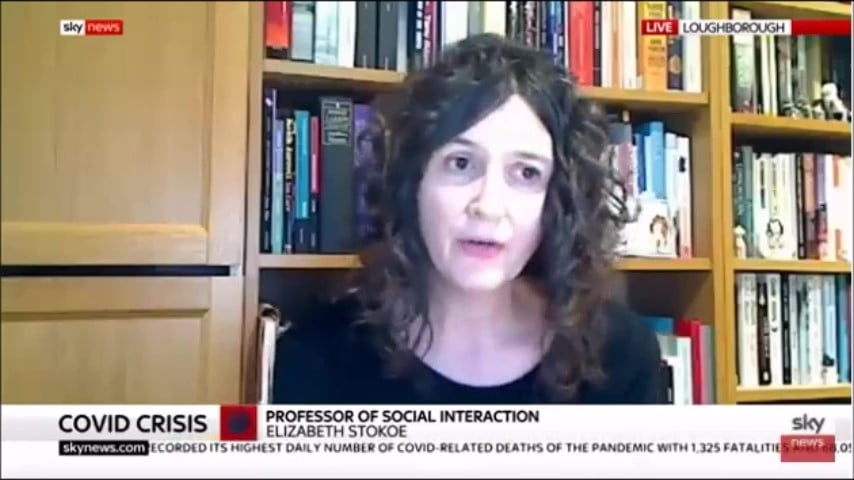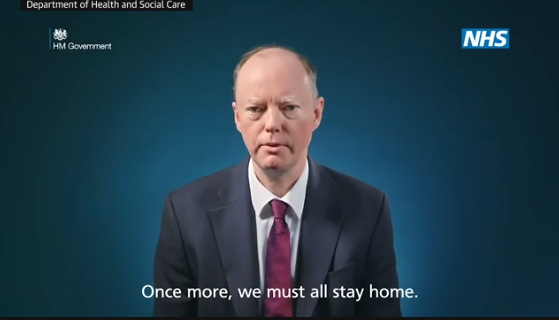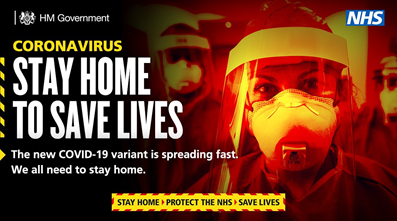
Regarding @IanCookson72's point below, #EMCA research shows us that whatever appears in the 'answer' slot in a conversation can be assessed (in the moment and post-hoc) for how it addresses the initiating 'question'. News interviews are full of examples.

https://twitter.com/IanCookson72/status/1417417233056387092
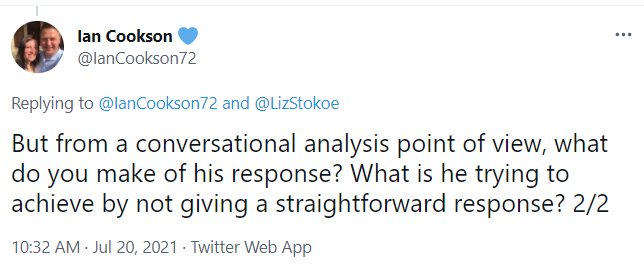
2. There is a great deal of conversation analytic and other research on media / news / political interviews – too much for a thread – including on the thousands of Newsnight interviews. 





3. If you’re not familiar with conversation analysis, transcripts use the ‘Jefferson’ system which, like music notation, includes the precise pace, intonation, etc. of real talk as it is produced, including gaps between and pauses within turns timed to the nearest 0.1 second. 

4. Like many questions in news interviews, Urban’s is a 'yes/no' interrogative (“Does that concern you?”), where 'that’ refers indexically to “Long Covid - the potential there for a bit of a timebomb. If we allow several million young people t’get the virus in coming months.” 

5. The 'yes/no interrogative' question is 'positively polarized' according to traditional grammar. A type-conforming response would be "yes, it does concern me" or "no, it doesn't concern me", though the 'grammatically affirmative question' seems to expect an affirmative answer.
6. This is a news interview so, in addition to saying 'yes' or 'no in response, further expansion is standard - though, of course, journalists often pursue 'just' a 'yes' or 'no' to their questions. The Paxman/Howard interview is a classic case – also from Newsnight. 

7. The response is delayed (line 05) and starts with a “well” (it is ‘well-prefaced’) (line 06). Both of these features indicate an upcoming 'dispreferred' response which, in this case, is both non 'type-conforming' (it's not a ‘yes’ or a ‘no') and non-straightforward. 


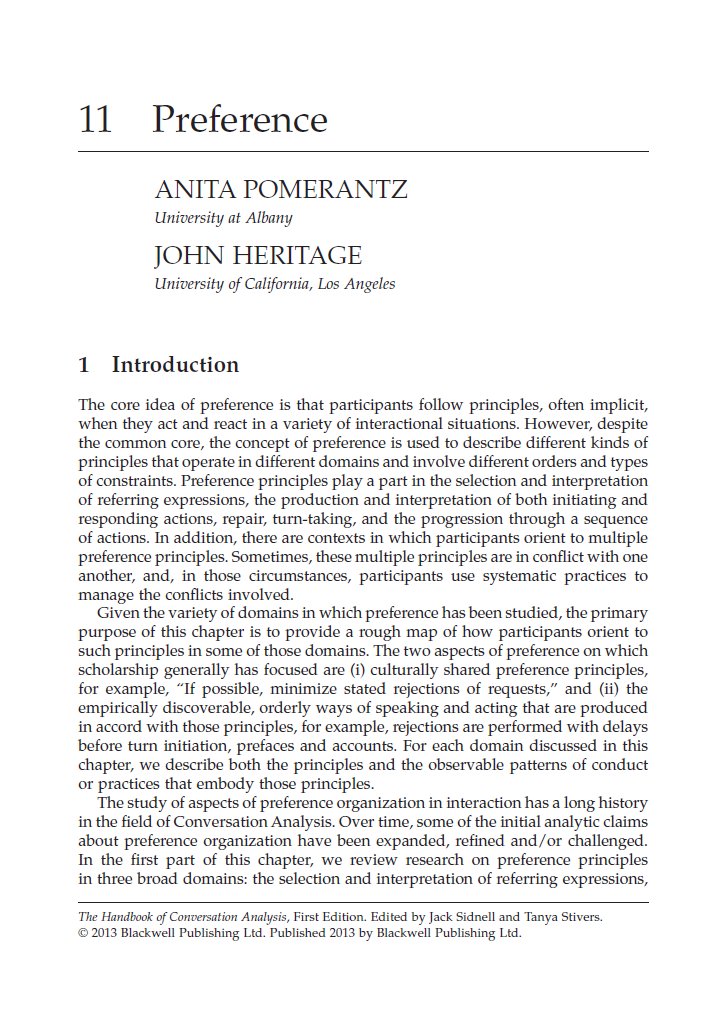
8. As Heritage writes, ‘well-prefaced turns’ are alerts that the response will be “rejecting”, “aligned against polarity”, “indirect”, “non-straightforward”, or will move away from “the constraints of previous turns” – in this case, the constraints of a yes/no question. 



9. The response proceeds to include a reformulation of 'Long Covid' as "some kind of post viral syndrome associated with Covid" plus "but..."
The conjunction 'BUT' is contrastive and commonly appears in disclaimers to negate whatever comes before it.
medium.com/@mcpflugie/usi…
The conjunction 'BUT' is contrastive and commonly appears in disclaimers to negate whatever comes before it.
medium.com/@mcpflugie/usi…
10. So, by taking a "Well X But Y" frame, with the Y component formulating reasons over five turns, the upshot of the response to the original question is, "no it does not concern me." 
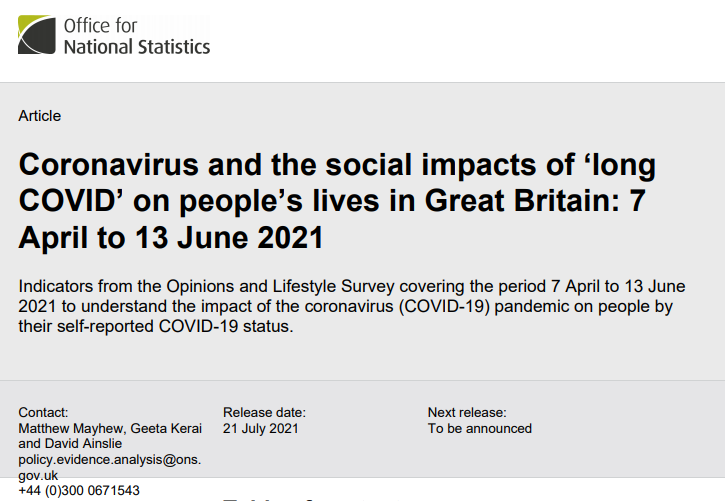
• • •
Missing some Tweet in this thread? You can try to
force a refresh


